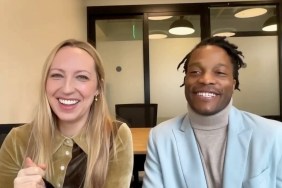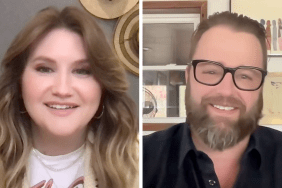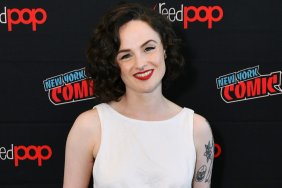
SHOCK talks to actress Sondra Locke about the trans-horror flick A REFLECTION OF FEAR.
Moody, lyrical, criminally underrated and seldom seen, A REFLECTION OF FEAR is a gentle, pond-like psychological horror film that taps into the subgenre of the psychotic gender-fluid serial killer. However, what makes this film fundamentally different from the others, is that the principle slasher is a doe-eyed, sleepy, whimsical waif equally tormented as much as she/he is a violent instigator. Instead of being a brash, overtly confident movie monster as depicted in such outings as PSYCHO, THE TENANT, DRESSED TO KILL, HOMICIDAL and THE SILENCE OF THE LAMBS, Marguerite is a delicate ragdoll dedicated to her refuge from the cruelty of the outside world, and a prisoner of such a callous environment that will never truly accept her or understand her.
Played by the incredibly versatile Sondra Locke in what would be a perfectly nuanced, measured and beautifully handled performance, Marguerite is a seductive nymphet that looks as though she has emerged from the sun-kissed garden she tends. With her long blonde hair, lithe body and spider-like mannerisms that border on genuine ethereality, Marguerite is a new kind of horror film aberration; one born from misery, human heartache, misunderstanding, deception, relentless sorrow and mourning. Her vulnerability is as captivating as her elegance, and her schisms and outbursts are as frightening as any demented thug wielding an axe or machete who came in droves some years after the release of this strange offering from Columbia Pictures.
Actress, writer, producer and director Sondra Locke had recently starred in the Faustian adaption of the classic introspective horror novel The Ratmans Notebooks with WILLARD, a brilliant character study and a perfect commentary on the very human rat race, the misfortunes of wish fulfillment and the horrors that are born from the mundane and the humdrum. From this vermin-infested modern Gothic, Locke had already established herself as someone that would be recognized in the horror genre with films such as the frenzied and violent DEATH GAME on her filmography and her directorial debut being the bizarre allegorical fairy tale RATBOY being a cult favorite. Locke would also audition for the titular tole of the telekinetic teen in the Stephen King adaptation of CARRIE directed by Brian De Palma, before Sissy Spacek would make the role iconic.
Having recently received an Academy Award nomination for her wildly honest portrayal of a young girl plagued by sexual frustration and an oppressive desire to be loved in THE HEART IS A LONELY HUNTER, and just on the cusp of solidly working heavily with then husband Clint Eastwood on a number of films from THE OUTLAW JOSEY WALES to SUDDEN IMPACT (where she played a rape victim who seeks revenge on the perpetrators), Locke would leave a creepy impression on audiences in the midst of all this with her terrifying entry here in A REFLECTION OF FEAR.

LOCKE: I think the character in A REFLECTION OF FEAR was so much more complicated than Mick in THE HEART IS A LONELY HUNTER. Mick was this sensitive character who wore her heart on her sleeve, and knew what she wanted and tried to get what she wanted, while Marguerite in A REFLECTION OF FEAR was this repressed young lonely person raised by these two very disturbed women, her grandmother and her mother, and as we learn from the story she is raised as a girl even though she was born a boy. Also, on top of all that, she has this fixation on her absentee father which is unhealthy and bizarre. So yes, they were very different characters, but they were both such frail and strong characters at the same time. I always feel that the character lies behind and between the lines – not in the lines themselves. And so, I’m always asking myself what my character would be thinking at every given moment in the story. I say the lines while at the same time thinking the subtext.
SHOCK: You do such a beautiful job in A REFLECTION OF FEAR, and you get to play out a lot of high energy neurotic outbreaks throughout the film was this something that was difficult to do? How did you channel such intensity?
LOCKE: I dont really know how to pinpoint my method or my approach to tell you the honest truth. The number one job of an actor is to be a character and never let the acting show. I really think a lot of people think that over acting is good acting, and for me, I dont wanna see the acting, I want to feel this characters reality. Having said that, for me, it comes from a place of intuition and just thinking about that person long enough that you sort of feel that you know them. And thats how I kind of go about it. I dont really have a specific process or a daily process, I just like to become the character to the degree I can. If Im playing a real life person I would take notes, I think thats important. For instance, when I played Rosemary Clooney I was lucky enough to meet her, thankfully she was still with us. And I talked with her and read her book, so when its a real person I want to find out everything I can. But that was the one and only ever time I played someone in real life and the only time approached a performance that way.

SHOCK: What did you think about the character when you first read the screenplay?
LOCKE: I first read the screenplay but there were two screenplays initially and I liked the first draft a lot better. It was written by Jack Corlino. And I liked it a lot. So I really wanted the part. I then found out that Bill Fraker was directing so I invited him to my house, and I dressed as the character and treated our meeting like a live audition, because I really wanted to play that part because I felt that it was so different than anything I had done and anything that I would more than likely ever read. It was so bizarre, because I had to screen test for it which is of course normal, but I never had to screen test for THE HEART IS A LONELY HUNTER and I had never acted professionally before. So not to have screen tested for that was pretty remarkable. But for A REFLECTION OF FEAR I had to screen test, but in a sense I had pre-auditioned while I had Mike over, but when I went to see the casting director I went in as Marguerite, I wore the dresses and had my hair in a pigtail, and I went in as her. So I got the part and then there was a new script and I didnt like it as much as I liked the original, I mean the original was far more slick and edgier and rougher, while this new one was a little bit too clean and unnecessarily cleaned up. Then I read the book, which gave me some more insight into the character, and I am sure the book was based on a true story, and I just soaked it all in. I loved everything about the production except I felt that studio messed with it far too much and the reason why it wasnt released for such a long while is because the studio wanted to turn it into an atypical pattern horror film, and they pushed and pushed for that approach. And of course they had more power than the director at the time, and so they, for the most part, got their way. But we secretly filmed a different ending which was the actual ending of the original script. But it never got in the film. In the original ending it was more obvious that Marguerite was a boy! There was a scene where she is having a psychotic break where the male part of her was becoming the dominant part, where it had been the submissive part throughout the story. And in the original ending we see him stuck in a corner where he starts to rip off all of his clothes, and we had prosthetics so you could actually see that he was in fact a boy. But the studio wouldnt have it, it never made it to the screen. Instead they went with the ending that I absolutely hate! Its the awful ending where you hear that ghastly voice over who is meant to be a nurse at the time of delivery, and this voice is speaking very slowly so she can stretch this no-dialogue for the length of time needed! Oh it was so horrible! The studio just didnt get certain elements of the script, so they structured it so it would be a regular stalk and slash thing where someone was running around killing people. The director and I wanted it to be a moody, brooding horror film, but of course the studio thought differently and what they missed was the fact that the film itself doesnt feature much blood or gore, so it didnt make sense. It was a psychological film. Horror can be so great, but the material wasnt there to make it into a certain type of horror film that it wasnt.
SHOCK: The art direction is gorgeous and very creepy I love all the dolls, do you remember the look and feel of the set?
LOCKE: It was fantastic. I got one of those dolls. I kept it. It was the two headed puppet where you turn it over and it wears a huge ball gown and then when you turn it over the other way its a completely different puppet. It had a completely different costume. I really wanted to keep more of them!
SHOCK: The cinematography in A REFLECTION OF FEAR is just gorgeous do you remember working with the cinematographer closely?
LOCKE: Laszlo Kovacs was marvelous. He was very much in the same school as Bill Frake who was of course a great cinematographer as well. They had a very similar style and similar sensibility. It was a very lovely shoot, a great shoot, I mean the only problem was that we were filming in an amazing house as you can tell from the movie in downtown LA what used to be many decades ago a very rich part of the city in the early days of LA. It was three stories, and each room must have been three thousand square feet and there was a ballroom. It was so amazing, but the problem was it was right in the middle of the city and there was traffic everywhere so it was very noisy. And the studio didnt want the sound guy that Lazslo had in mind, so we had really bad sound, and so the whole filmed had to be looped. I remember bursting into tears when Billy told me that I had to loop it, and I just thought Well, this is not gonna be the same. I felt my whole performance was going to be destroyed. And Bill had warned them, and they tried and tried to clean up the sound. Of course in the story its supposed to be an island, and that was great to fuel the loneliness of it all. But of course we were in busy downtown LA.
SHOCK: What was it like working with Mary Ure, Sally Kellerman and Robert Shaw?
LOCKE: Robert was a hoot, he drank a lot. But you would never know it! I mean he would drink every day and drink a lot. He was very funny, very entertaining, very likable and he had great stories. He was a lot of fun, I mean having a long relationship with him might not have been fun but working with him briefly was definitely fun. Mary Ure was good, but I found her to be very neurotic. But she and I got along. There were moments where I felt she was trying to over act a lot just to make sure she was making an impression. Sally Kellerman is a great character but she was in her moment at the time and she was very pretentious back then. She had just played Hot Lips in M*A*S*H and she was just so full of herself. She would use all that awful Hollywood talk where shed say things like Ill have to ask my people and Hmm I think my people wouldnt like that and this is of course completely opposite to me, I was like Really? You know, I am so down to earth and not at all interested in that kind of approach. But I still liked her, and I just took it for what it was.
SHOCK: The incest undertones are rather confronting what was director William Frakes like when dealing with this subject matter? How was his direction in the more provocative scenes?
LOCKE: I adored Bill Frake, we were friends, we were good friends until the day he died. But he didnt have a lot to say to his actors. His approach and vision came through the other side of the camera. He just expected the actors to do their jobs. I have never worked with a real actors director, and that is a big regret, because I would have liked to have seen what I could have been capable of.
SHOCK: The role in A REFLECTION OF FEAR is so borderline and frightening, do you think it may have lead you to being shortlisted for CARRIE?
LOCKE: Oh, yeah, for CARRIE. Honest to God, I have sort of forgotten the timing of things. I remember that, what I understood; I dont know if it was at the time or later, that Brian (De Palma) wanted me to play the part. But, I cant remember what it interfered with. I am actually thinking that it interfered with THE OUTLAW JOSEY WALES. It was something else. I think it was JOSEY WALES that interfered with it. Especially my agents at the time, I was really angry with them, because there were a couple of pictures that were low-budget, and there were a couple other films that came along that were scale jobs. My agents, one of which, hid from me. I didnt even know until years later that I had been offered it, which was of course, illegal but they just said, No, without even giving me the script. They sort of held up my decision. They sort of guided that. It was again, a low-budget, scale movie CARRIE. It kind of came along in conflict with JOSEY WALES.

SHOCK: Did working on something like A REFLECTION OF FEAR spark an interest in you becoming a director, or was this something you always wanted to do?
LOCKE: Well, I only really started thinking about myself as a director when, you know, working with Clint, because while I was working with Clint, I became involved in the whole production process because I was always around from casting to pre-production to the editing room. I was always hanging around watching. And, so I started thinking, You know, I think this could be something I could do. And that is really when I got the directing idea. But, I think if more women had been directing when I was a child, I probably would have gone for directing first. But, as a child, all I wanted to do was make movies. I mean, as you probably know, I grew up in a small town in Tennessee. Locally, there was one theater, and every time the bill changed I was there to see a film. It was just kind of my day-dream my dream! But, the only thing I saw women credited with in those days, was the acting. The actors and that was it. I actually thought, Well, if I want to be involved in doing that, than I guess I have to be an actress. And I loved acting, I really loved acting but at the same time, you dont always find the roles, you dont always find the challenges. It can become kind of boring and predictable. And, as a director, even if you arent crazy about the script, you want to change it and you arent allowed to change it you can always have this handful of challenges that sort of drive you. Whereas, as an actor, if the role isnt that interesting, you have very little challenge! Well, I loved Ingmar Bergman. I guess Ingmar Bergman and Vivien Leigh was one of my favourites. And oddly enough, later on, I remember liking Lana Turner. There was just something about the particular melodramas that she was in. But strictly as, for the talent point of view Ingmar Bergman is my favourite. There were the days in movies that just took you into another life! This whole world that you would just never see. You certainly never would see now because the world has changed. But, you just felt like you had gone on a trip. I kind of miss that in movies. I have always like quirky films. And I think, if I had not been with Clint, I probably would have had a much more indie geared career. I was more suited to that, to tell you the honest truth. Well, Im finding it harder and harder to find anything to like, which makes it easier to retire
SHOCK: Can you tell us about your audition for CARRIE?
LOCKE: My agent sent me the script of CARRIE. I was interested in the role and I met with director Brian De Palma. He came to my apartment to discuss the film. He had made a couple of films at that time, but I hadn’t seen them and wasn’t really certain of what his film might be like. Afterward, I was told by several people, including my agent, that I was his first choice for the role. I’m assuming the information was correct, and I have read several interviews over the years which quoted him as saying that Sissy Spacek was not his first choice. De Palma requested about three girls to test – I was one of the three, and assume that Spacek was another. It is typical that a deal is negotiated prior to any test. The offer was for scale. The combination of the scale offer and the required test became a problem for me. I was advised by my agent not to do a scale film at that time. I agreed with that, but also did not want to be required to make a test, as I had already been nominated for an Oscar and had plenty of work to show. My decision was also influenced by the fact that the offer to make THE OUTLAW JOSEY WALES occurred about the same time. JOSEY WALES would give me an opportunity to be in a film that had an expected large mainstream audience, which I felt would be good for my career. The box office success of CARRIE was very unexpected. In that respect it reminds me of WILLARD – a small film that sneaked thru the cracks and became a financial success. Anyway, those were my reasons for not pursuing De Palma’s interest in me for the film. Looking back I realize that making the decision not to do CARRIE, and instead to do THE OUTLAW JOSEY WALES changed the course, not only of my career, but of my personal life!








